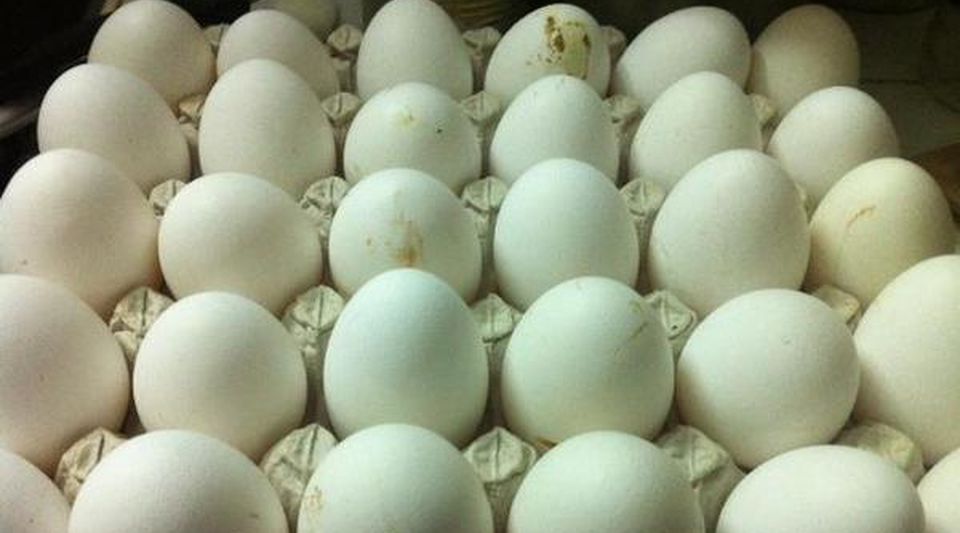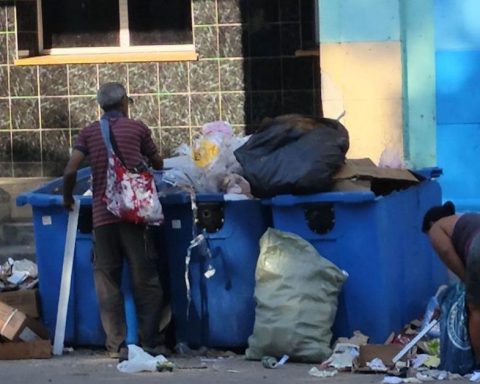Barely a month ago, the official media surprised by promoting the consumption of quail eggs as a more effective, profitable and nutritious alternative to chicken. Although the shortage of this food has been palpable in the island’s markets and warehouses for months, the figure is known this Friday thanks to a report in the provincial newspaper of Ciego de Ávila, Invasor.
“For its prioritized orders, the country needs about six million eggs daily and we are barely getting two or three,” says Katia Leyda Martínez Arnáez, director of the province’s Poultry Company.
The note exposes the critical situation. Only in Ciego de Ávila, one of the three Cuban provinces with the best poultry data, more than half of the hens do not lay. Specifically, out of a hundred hens, only 43 lay an egg a day, while 57 do not. Although the data is dramatic, the information highlights that it is already almost a miracle that those who put, do.
“If we say that they have gone several days without eating, that others have nibbled on a very scarce mixture of protein, that some have not had water on time due to lack of electricity and – incidentally – not enough light to stimulate laying, that they have eaten out of hours due to delays in food, that there are decrepit ones that are still in production 14 months after what was indicated, but even so, out of every 100 hens, 43 manage to overcome that stress and lay an egg, the news may sound encouraging,” the text prays.
Only in Ciego de Ávila, one of the three Cuban provinces with the best data on poultry farming, more than half of the hens do not lay
The company, however, is restrained, as it admits that, although it has managed to produce 126 million eggs in one year, it set a goal of 100 million by 2022 and, at the end of September, had only delivered 60 million. In the words of its director: “It is going to be the worst year, without a doubt.”
According to his production manager, the eggs from the basket corresponding to September did not arrive in Ciego de Ávila until the 29th, after the additional ones, which had been reduced in quantity, had not arrived for several months. The product is distributed in different provinces and the situation was even worse for them. For example, Holguin and Santiago arrived in August on September 7.
In Guantánamo, cites the newspaper itself, the delays have already accumulated five months, recalling that the local press warned that April or May did not arrive until June.
The case of Ciego de Ávila is not isolated. Martínez Arnáez affirms that the situation in Santiago de Cuba is even more critical due to the lack of food, “the difficulties in importing raw materials, making feed and transporting it later.” There only 10 out of 100 hens lay eggs daily.
“Consequently, the Poultry Company has not only run out of profits trying to feed its birds at whatever cost, but they have also incurred losses: eight million”
Feed transfers are one of the reasons with which the official explains the situation. The food is normally brought from Cienfuegos, although now they come to Santiago trying to lower costs. However, the situation is even worse, because the cost of fuel raises the price of eggs, which has gone from the two pesos approved by the annual plan to almost three pesos.
“Consequently, the Poultry Company has not only run out of profits trying to feed its birds at whatever cost, but they have incurred losses: eight million,” says the directive.
To alleviate the blow to poultry farming, efforts are now being made to support the supply with the so-called Creole egg, raised by individuals, which would not have to be sent to other provinces for the basket, and to promote its commercialization to reduce losses. It is a strategy planned for next year, and although rustic hens are already being raised to be delivered to rural areas, for now it is not known under what conditions.
On the other hand, the Creole egg is a food that is produced mainly at the domestic level and for the self-consumption of families. Kitchen scraps are traditionally used to feed the chickens, which, in the midst of the economic crisis, are severely undermined.
The other alternative for the family is to go to the informal market, where a carton of 30 eggs can reach 1,700 pesos, a figure that is equivalent to more than half the minimum wage of a Cuban worker.
________________________
Collaborate with our work:
The team of 14ymedio is committed to doing serious journalism that reflects the reality of deep Cuba. Thank you for joining us on this long road. We invite you to continue supporting us, but this time becoming a member of our newspaper. Together we can continue transforming journalism in Cuba.

















